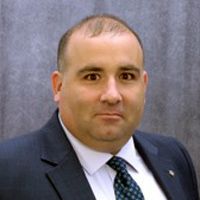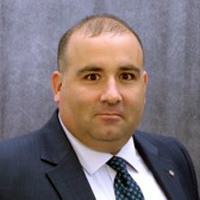The Best Time to Start Saving for Your Child's College Education
It's right now. Here's why.

Profit and prosper with the best of Kiplinger's advice on investing, taxes, retirement, personal finance and much more. Delivered daily. Enter your email in the box and click Sign Me Up.
You are now subscribed
Your newsletter sign-up was successful
Want to add more newsletters?

Delivered daily
Kiplinger Today
Profit and prosper with the best of Kiplinger's advice on investing, taxes, retirement, personal finance and much more delivered daily. Smart money moves start here.

Sent five days a week
Kiplinger A Step Ahead
Get practical help to make better financial decisions in your everyday life, from spending to savings on top deals.

Delivered daily
Kiplinger Closing Bell
Get today's biggest financial and investing headlines delivered to your inbox every day the U.S. stock market is open.

Sent twice a week
Kiplinger Adviser Intel
Financial pros across the country share best practices and fresh tactics to preserve and grow your wealth.

Delivered weekly
Kiplinger Tax Tips
Trim your federal and state tax bills with practical tax-planning and tax-cutting strategies.

Sent twice a week
Kiplinger Retirement Tips
Your twice-a-week guide to planning and enjoying a financially secure and richly rewarding retirement

Sent bimonthly.
Kiplinger Adviser Angle
Insights for advisers, wealth managers and other financial professionals.

Sent twice a week
Kiplinger Investing Weekly
Your twice-a-week roundup of promising stocks, funds, companies and industries you should consider, ones you should avoid, and why.

Sent weekly for six weeks
Kiplinger Invest for Retirement
Your step-by-step six-part series on how to invest for retirement, from devising a successful strategy to exactly which investments to choose.
Imagine dropping your kid off at college for the first time. It's bound to be an emotional day for everyone—just ask any parent who has already done it.
Now imagine that same day, and add worrying about whether you can afford all the costs that come with higher education.
According to the College Board, in the 2015-16 school year, the average cost for tuition and fees at a public four-year college for an in-state student was $9,410. Room and board requires another $10,138. That makes your grand total $19,548 for just one year of college. For an out-of-state student, the cost goes up to $34,031. And that's not even including books, electronic devices and all the extras young adults are bound to want.
From just $107.88 $24.99 for Kiplinger Personal Finance
Become a smarter, better informed investor. Subscribe from just $107.88 $24.99, plus get up to 4 Special Issues

Sign up for Kiplinger’s Free Newsletters
Profit and prosper with the best of expert advice on investing, taxes, retirement, personal finance and more - straight to your e-mail.
Profit and prosper with the best of expert advice - straight to your e-mail.
Plus, consider that college costs have marched steadily higher over the past few decades. Back in 1985-86, tuition and fees at a public four-year college for an in-state student was just $2,918. In 1995-96, it was $4,399. And in 2005-06, it popped up to $6,708. So, barring any major disruption to this upward trend, you can expect your little one's education to cost substantially more than the already high current averages.
Your imagined college drop-off day just got a lot more stressful, didn't it?
You might be tempted to deal with this problem by putting it off, as so many of us constantly do with so many other things in life. After all, you have until Junior's junior year of high school to worry about all this college stuff, right?
Wrong.
The longer you put off planning for college, the bigger a challenge it becomes. The smarter move is to start thinking about it all as soon as possible. The more time you give yourself to save for education, the better off you and your child will be.
Consider this: Let's say you get a total of $5,000 in cash gifts at your baby shower. If you put all of that money into a college fund that earns an average return of 8% annually over the next 18 years, you'll wind up with $19,980 without adding even one more penny yourself. That's enough to cover a year of state school and then some. Don't think an 8% return is a reasonable assumption? Even at 6% a year, your total comes to $14,272. Not chump change.
If you can add to your savings over time, all the better. Even if you can only afford to contribute a small amount each month, your efforts will add up over time. Starting with that $5,000, if you put in another $100 a month and earn 8% a year, you'll reach $66,845 by the time your kid turns 18.
Obviously, the math says that the best time for you to start saving is right now. If you wait until your child is a sophomore in high school to start saving for college, it would be far more difficult for you to accumulate that much in such a short amount of time.
Not sure where you can start saving? A good financial adviser can help you analyze your cash flow and formulate a plan to achieve your goals. That includes identifying specific areas in your budget where you can reduce expenses. You can also develop a cost-effective debt repayment strategy, which can free up plenty of cash for additional saving.
That said, one word of warning: Do not forgo saving for your own retirement in order to save for your child's education. It might sound like a heartless piece of advice, but, in this case, you have to put your own needs before those of your child's. Remember, your kid does have the option to borrow in order to pay for college. It might not be the most desirable option, but it is an option. You won't find any similar deals for financing your retirement.
Besides, think of it this way: By saving enough to support yourself through retirement, you ensure that your children aren't forced to financially care for you after you run out of money.
Bottom line: You need to have an education funding review as soon as possible to help you through this financial challenge. By working with a good financial adviser on this goal, you can customize a smart plan to fit your own unique situation and ensure that you reach your goal—providing your child with the education he or she needs to succeed in the future.
Then, when the day comes for you to send your baby off into that next stage of life, you won't have to worry about money at all. Instead, you'll be able to focus on all the other things you'll need to do that day, like say goodbye.
Scott Vance is a fee-only financial planner and enrolled agent serving the greater Raleigh, N.C., area. He recently retired from the Army and seeks to continue service through financial advising.
Profit and prosper with the best of Kiplinger's advice on investing, taxes, retirement, personal finance and much more. Delivered daily. Enter your email in the box and click Sign Me Up.

Scott Vance is a fee-only planner and Enrolled Agent serving the Raleigh, N.C. area. He recently retired from the Army. His background allows him to uniquely understand issues faced by military personnel, but he works with all clients. He is currently a candidate for CFP® certification and seeks to provide objective, commission free advice to clients. Vance was born and raised in Pennsylvania. He is married to Amy. They have a son, Brandon. They enjoy skiing and kayaking.
-
 Nasdaq Leads a Rocky Risk-On Rally: Stock Market Today
Nasdaq Leads a Rocky Risk-On Rally: Stock Market TodayAnother worrying bout of late-session weakness couldn't take down the main equity indexes on Wednesday.
-
 Quiz: Do You Know How to Avoid the "Medigap Trap?"
Quiz: Do You Know How to Avoid the "Medigap Trap?"Quiz Test your basic knowledge of the "Medigap Trap" in our quick quiz.
-
 5 Top Tax-Efficient Mutual Funds for Smarter Investing
5 Top Tax-Efficient Mutual Funds for Smarter InvestingMutual funds are many things, but "tax-friendly" usually isn't one of them. These are the exceptions.
-
 One of the Most Powerful Wealth-Building Moves a Woman Can Make: A Midcareer Pivot
One of the Most Powerful Wealth-Building Moves a Woman Can Make: A Midcareer PivotIf it feels like you can't sustain what you're doing for the next 20 years, it's time for an honest look at what's draining you and what energizes you.
-
 I'm a Wealth Adviser Obsessed With Mahjong: Here Are 8 Ways It Can Teach Us How to Manage Our Money
I'm a Wealth Adviser Obsessed With Mahjong: Here Are 8 Ways It Can Teach Us How to Manage Our MoneyThis increasingly popular Chinese game can teach us not only how to help manage our money but also how important it is to connect with other people.
-
 Looking for a Financial Book That Won't Put Your Young Adult to Sleep? This One Makes 'Cents'
Looking for a Financial Book That Won't Put Your Young Adult to Sleep? This One Makes 'Cents'"Wealth Your Way" by Cosmo DeStefano offers a highly accessible guide for young adults and their parents on building wealth through simple, consistent habits.
-
 To Love, Honor and Make Financial Decisions as Equal Partners
To Love, Honor and Make Financial Decisions as Equal PartnersEnsuring both partners are engaged in financial decisions isn't just about fairness — it's a risk-management strategy that protects against costly crises.
-
 For More Flexible Giving, Consider Combining a Charitable Remainder Trust With a Donor-Advised Fund
For More Flexible Giving, Consider Combining a Charitable Remainder Trust With a Donor-Advised FundIf a charitable remainder trust puts too many constraints on your family's charitable giving, consider combining it with a donor-advised fund for more control.
-
 These Thoughtful Retirement Planning Steps Help Protect the Life You Want in Retirement
These Thoughtful Retirement Planning Steps Help Protect the Life You Want in RetirementThis kind of planning focuses on the intentional design of your estate, philanthropy and long-term care protection.
-
 A Wake-Up Call and a Healthy Dose of Terror: How to Survive Your First Days in Prison
A Wake-Up Call and a Healthy Dose of Terror: How to Survive Your First Days in PrisonThis young man needed to be scared straight after his mother expressed her fear that he was on a path to prison. Hearing these eight do's and don'ts worked.
-
 How Money Guilt Holds Women Back (and How You Can Send It Packing)
How Money Guilt Holds Women Back (and How You Can Send It Packing)Women shouldn't let guilt limit the way they manage their hard-earned wealth. It's time to separate emotion from financial decision-making.